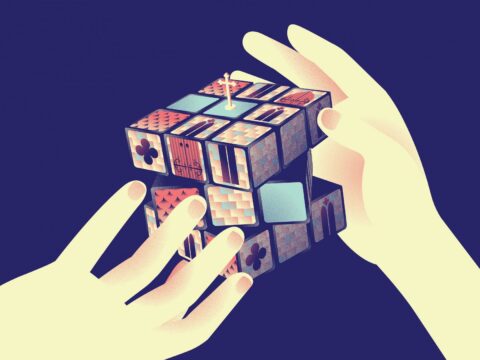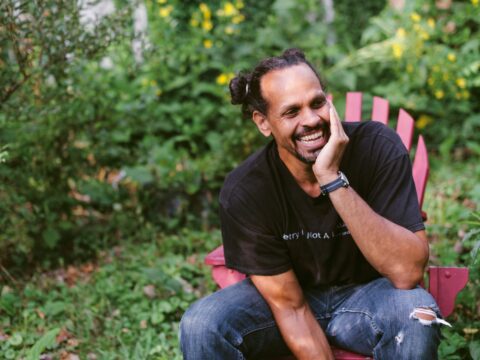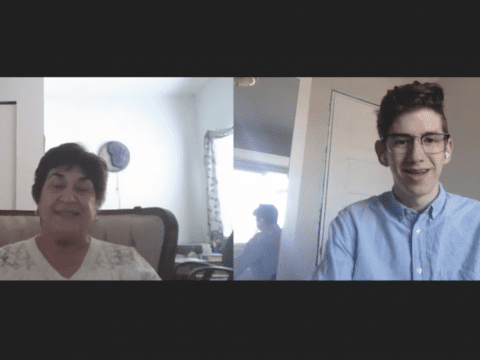I live with chronic pain and chronic illness. I’ve spent half my life, from ages 14 to 30, collecting permanent diagnoses: a crooked spine, a dysfunctional esophagus, rebellious reproductive organs.
These conditions have been frustrating, painful, disruptive. They’ve required hospital procedures and daily home therapies. But I never felt disabled until my late 20s, when chronic fatigue syndrome set in. My symptoms wax and wane; I have only a finite amount of energy. Capitalism has no patience for that. I’ve realized that Christianity doesn’t either.
You may unsubscribe from any of our newsletters at any time.
Religion has always filled a large portion of my time, my thoughts and my heart, but lately a life of faith is one more mountain over which to drag my protesting body. I know, on an intellectual level, that a life of spiritual contemplation and praise is a worthy one. But in my heart, I have never been able to separate faith from action.
More on Broadview:
- What I learned from writing a poem a day
- Muslims celebrate Mary, too. And I couldn’t be prouder to carry her name.
- Christians shouldn’t miss this chance to learn to pray at home
I was 11 when I first felt a spiritual call. A deep, troubling, motivating restlessness haunted me until I threw myself into activism to ease a suffering world. Two decades later, nothing about the world suggests that it’s a good time for any of us to rest. Except that now I have to, or I will crash disastrously. And that leaves me deeply ashamed.
After all, in spite of my problems I have plenty of privilege. I’m white, cisgender, middle class. My disabilities are invisible, so I don’t face discrimination for them. My faith tells me I need to be using my privileges to lift others up. And I do when I can. But I am so tired. And when I’m not, I’m afraid of how tired I’ll be after my next exertion.
If I try to reason this out logically, the dilemma becomes absurd — as if there’s a line drawn through the spectrum of suffering, with those who can serve on one side and those who deserve to be served on the other. But that’s ridiculous. Would I condemn someone else for doing only what their body allows? Of course not.
Yet this ableism is buried at the centre of our religion. The Protestant work ethic that helped make a monster of capitalism lurks within us. After all, no one ever explicitly taught me that my worth as a Christian was bound to my ability to work. But somehow that’s what I learned. I feel a responsibility to the world, and that’s not a bad thing. Still, I can’t simply work my way to righteousness.
This would be easier to untangle if I had a modern doctrine of suffering to embrace. I’ve rejected all the old ones: man deserves to suffer because he is sinful; woman deserves to suffer because she is not man; suffering in this life is good because you will be rewarded in the next.
There is another narrative I could turn to, of course. It’s the bleeding woman who was healed by the strength of her faith. It’s a hundred Chicken Soup for the Soul stories of belief becoming miracle. I’ve come to hate this narrative. It’s judgmental, suggesting that everyone who is ill simply lacks the faith to cure themselves.
Maybe there’s a gap in our teachings that leaves those who aren’t able-bodied behind. I’m not ashamed of what my body is; the shame comes from outside, from the inability to meet expectations. Pain is an old companion, and the fatigue might be bearable — if only there was less work to do.
This article first appeared in Broadview’s January/February 2021 issue with the title “A life of chronic pain.”
***
Erin Alladin is a freelance writer, poet and editor in McKellar, Ont.














Do you equate religion as Christianity?
A Christian realizes that once they become Christians God bestows Spiritual gifts. If you are using those gifts, then I couldn’t see any Believing church not having patience with you. It sounds like you’re beating yourself up and blaming either the church or God for not allowing you to be something more than you already are.
The apostle Paul tells us to “continue” to work out our salvation with fear and trembling for it is “God” who works in you to will and to act in order to fulfill “His” purpose.
Christ tells us we need to edify each other, but I don’t recall any passages that claim we have to kill ourselves doing so.
Your faith seems to based on feelings, not on the reassurance that God is in control and will support you in everything you do (I know easier said than done), especially if you’re “privileged” and can do everything yourself.
What is God calling you to do? Has He changed His direction in your life? Perhaps you have “graduated” to something He needs you to do. God is by all means logical, but not bound to our terms and conditions.
Ableism is NOT a Christian sign of faith, it becomes dangerously close to becoming like other faiths, “salvation by works” rather than Salvation by faith.
Man does not suffer because he is sinful John 9:2-3.
Feminism teaches the lie that women suffer because they are not men. I would like a Scripture verse that supports the claim, therefore it is not doctrine. Suffering in this world does not promise an eternal reward. The only way to ensure an eternal reward is to believe Christ as God, was born in the flesh, died, rose again, to atone for your sins. Suffering in this world will make us appreciate Heaven all the more.
I recall a Christian polio victim who went to a faith healing service. I have never known such a believer as this person, but they wanted to prove the quackery. They were told they didn’t have enough faith to be healed. Nothing furthers the Gospel than false prophets. God honours those who work with Him, He understands that you cannot always put in 100% all the time. You are working for God’s glory, not for yours or other people.
It sounds like you are in a lot of physical pain. No one can hear the story of another’s person’s pain and not desire it to be healed. But to blame ‘Christianity’ and I am not sure the scope of your use of the term ‘christianity’ for ableism (the discrimination in favor of able-bodied people as I think you mean it) must respectfully be qualified . It is simply not in the gospel of Jesus Christ. It is not his teaching, his preaching or his actions. it is not the teaching of the apostles or Paul. So, its hard to respond to your article without understanding the motivation for the title of the article or without understanding the heart of your suffering. I think you partly answered your own question when you said I need to find a new way of seeing. I presume you mean a way of seeing your suffering in the context of your relationship with God. Your intuition sounds like you are on the right track. You are not willing to give up on faith and yet you struggle to carry your suffering faithfully. Perhaps a faithful spiritual director to help you explore that insight. We will hold you in our prayers for physical healing and spiritual insight in our online service over the next few weeks. After all the NT Testament is clear, this is what Christians do for one another (James 5). Blessings to you.
Dear Erin,
I beg of you to reach out to Jesus. He will give the grace you need for each step of the way. Jesus also faced much suffering n misunderstandings in life, but He continued faithfully to show love even when ppl were intentionally hurting him.
I also have a disability, so I can relate. But I remember as a young child deciding my disability would not control me n I am thankful for the most part I have been able to say by God’s grace it has not controlled my life. It has taken major acceptance at times, but peace is found in putting my hand in the Father ‘s hand n saying ,” Yes, Lord.”